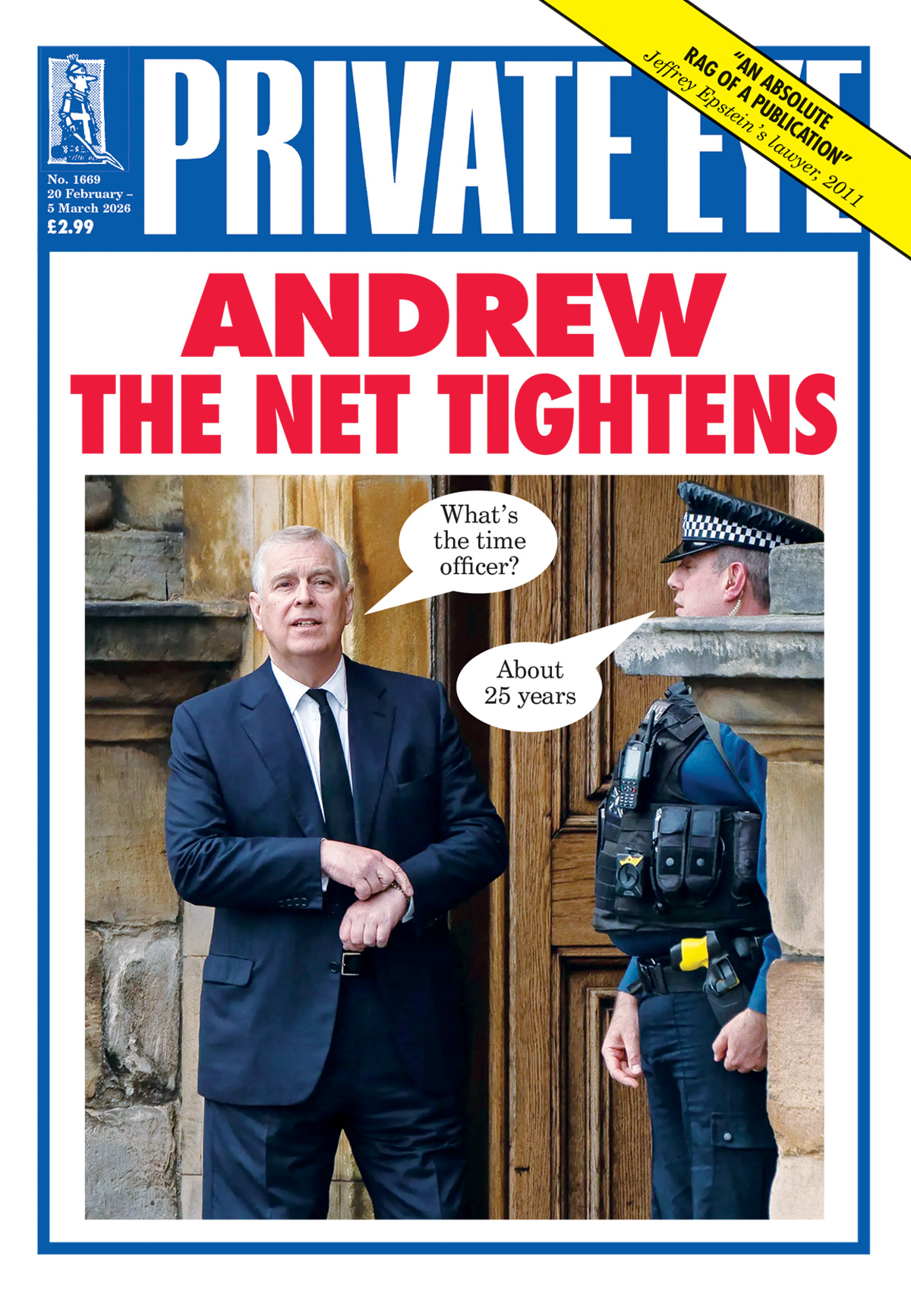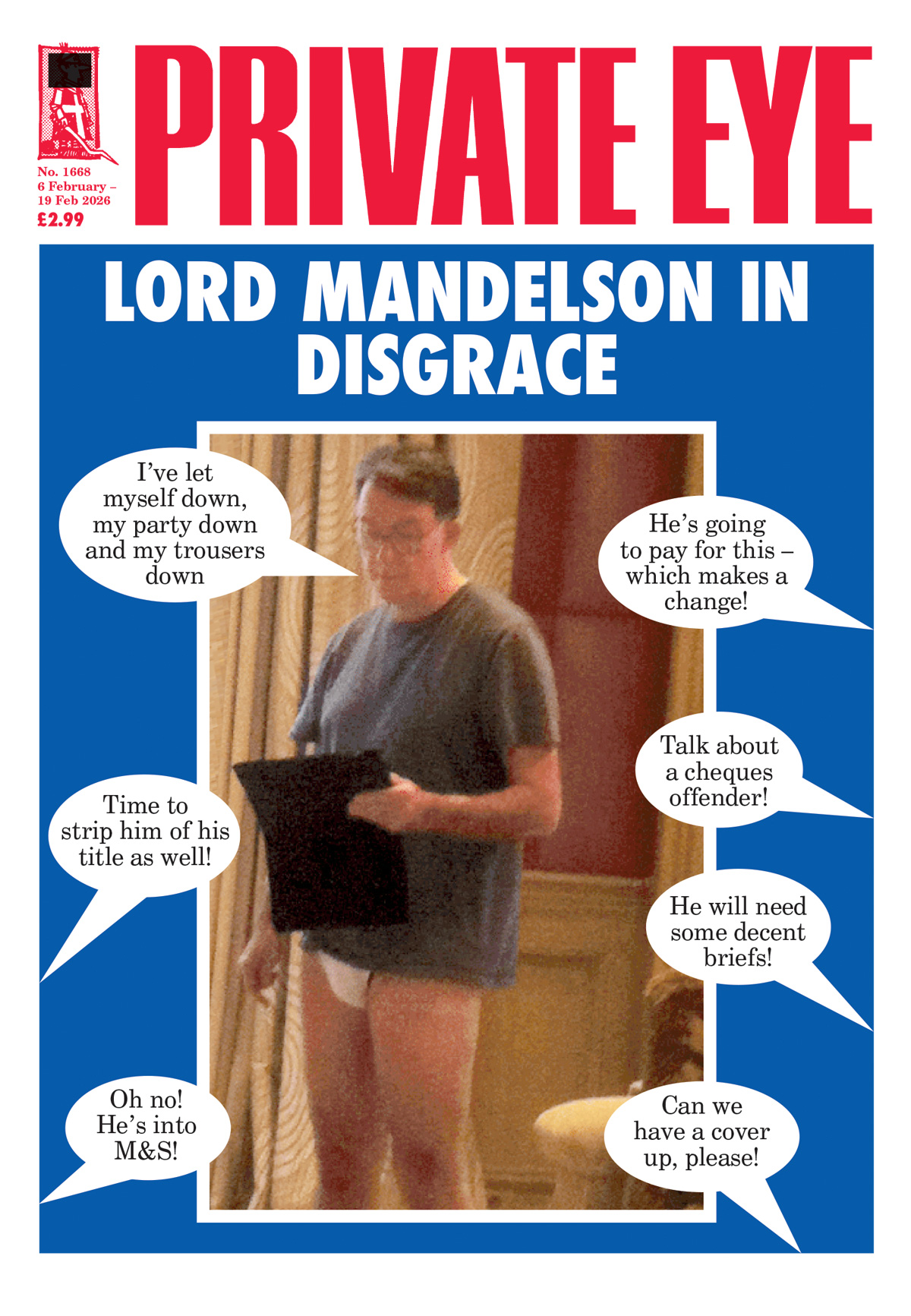In the Money , Issue 1669

As one reviewer noted of his day there back in 2013: "After the second drive we retired to a folly for bouillon and very civilised elevenses, including champagne served by a butler."
Since 2021 the business has been run through a company called The Lakes Sporting Club Ltd, presented as a sporting society which, like a local tennis club taking booking fees, would not have to charge VAT. Invoices seen by the Eye show parties being charged in the high tens of thousands of pounds – all VAT-free.
Profit and gloss
The sporting club VAT exemption applies only to bodies that aren't set up to make a profit and aren't "subject to commercial influence". The Lakes Sporting Club has certainly made profits, but does not distribute them.
According to its latest accounts, the company controlled by Richard Caring's finance team was sitting on £606,000 of them and had £439,000 in the bank a year ago. A spokesman told the Eye that Caring had never taken profits from the company.
Criddle riddle
The shoots are organised by a separate company, Criddle Fieldsports Ltd, based in Mid Wales. It has taken to invoicing in its own name, again VAT-free – with the description "No VAT Sporting Club" on the bill, despite the operation being highly commercial.
The company, owned by Will Criddle, operates bird shoots, and deer stalking, across the UK and arranges overseas trips. It is even more profitable than The Lakes Ltd. Latest accounts show accumulated after-tax profits of £1.2m – before anything taken out by Criddle and minority shareholders. Of this, at least £284,000 was made last year.
Criddle Fieldsports boasts the consummate service. "Dotted around the estate are purpose-built thatched huts where the personal chef awaits," it trills in its brochure "Above & Beyond: Shooting experiences limited only by your imagination".
Clearly knowing its target clientele, Criddle adds: "All of our hosts are first aid trained and carry everything from plasters for a blistered trigger finger to a defibrillator." Which could come in handy before any unfortunate punter gets carted off to a hospital paid for partly by those who are paying VAT.
Criddle Fieldsports declined to comment.
COLUMNISTSIssue 1669

With Bio-Waste Spreader: "According to a new report from NFU Cymru, the number of Welsh beef cows (breeding females kept to produce beef calves rather than milk) has declined by 40 percent since 2004, an alarming trend broadly echoed across Great Britain. But can anything be done to prevent the rapid disappearance of the beef cow and some of Britain's rarest beef breeds from the countryside? The value of the single calf a beef cow rears is often not enough to cover the farmer's costs of keeping its mother…"

Medicine Balls with MD: "Have 'crack teams' cut NHS waiting lists? The government and Wes Streeting certainly think so. In October 2024, 'crack teams of top clinicians' were deployed to 20 hospitals in England in areas with the highest numbers of people off work sick, to help bring down the elective waiting list by 'improving productivity' and 'reducing avoidable demand'. The hospitals were given the snazzy title of 'Further Fast 20' trusts…"

With Dr B Ching: "The gap between Labour rhetoric and reality on jobs and housing is obvious in the 'Oxford-Cambridge growth corridor', where passenger trains still haven't started using infrastructure that was completed in 2024. In January 2025, chancellor Rachel Reeves's package for going 'further and faster to kickstart the economy' included funding the corridor's East West Rail (EWR) line, 'with new services between Oxford and Milton Keyes this year'. Two months later rail minister Lord Hendy said the line would be 'up and running later this year'. Alas…"

With Remote Controller: "On a Monday morning almost as cold back home as on the Italian slopes, BBC presenter Hazel Irvine had a demeanour previously unseen in a British presenter at this quadrennial event – beaming patriotic glee. Fronting day 10 of Winter Olympics 2026, Irvine started her run in a low rhetorical crouch – 'Last Thursday, this was shaping up as the near-miss Olympics for Team GB' – before a swerve and a vocal switch to standing with arms above the head…"

With Old Sparky: "Energy regulator Ofgem has published an open letter on the difficulties of getting new electricity generation projects hooked up to the grid, making it clear energy secretary Ed Miliband's 'clean power 2030' targets are a pipe dream. The only question is why none of the official 'independent' agencies involved in advising government on energy policy – Ofgem itself, the Climate Change Committee (CCC) and the National Energy System Operator (Neso) – didn't see it as their duty to tell Miliband so when he took office..."

With Lunchtime O'Boulez: "When tenor Roberto Alagna failed to appear on stage for the final act of Turandot in late January, the Royal Opera told a mightily pissed-off audience he'd been taken ill. The production battled on with the head of music singing (as best he could, having last sung solos for the Royal Opera as a treble) Alagna's role from the wings, and omitting Nessun Dorma – the aria many were there to hear. The audience booed…"

Letter from Delhi
From Our Own Correspondent: "More elections, more hate speech – the ruling Bharatiya Janata Party (BJP) of our prime minister Narendra Modi is nothing if not predictable. As state elections loom in Assam and neighbouring West Bengal in the east, and the southern provinces of Tamil Nadu and Kerala, the BJP is again polarising communities and promoting Hindu political and cultural supremacy. It has proved a winning formula…"
































